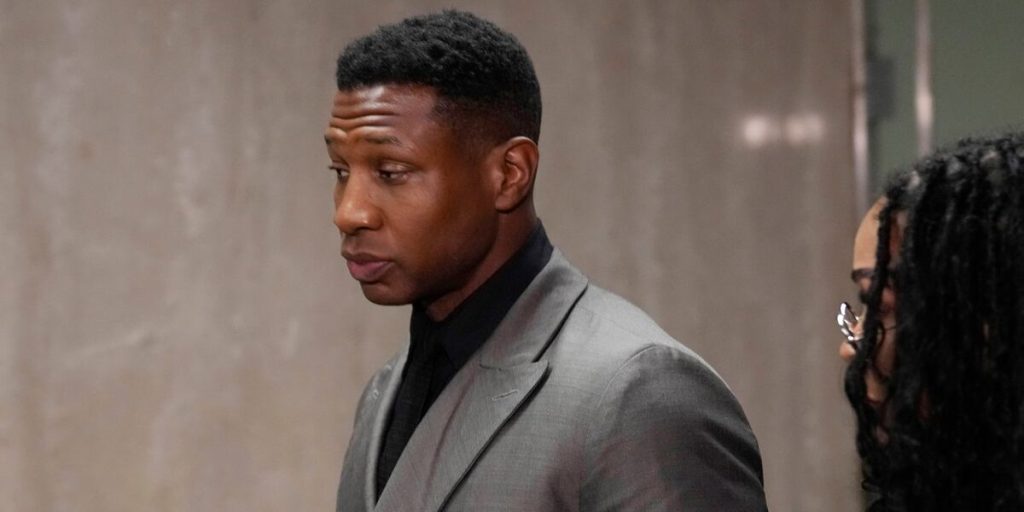The recent sentencing of actor Jonathan Majors to one year of domestic violence counseling has sent shockwaves through both the entertainment industry and society at large. Majors, known for his roles in prominent films such as “Creed III” and Marvel Studios’ “Ant-Man and the Wasp: Quantumania,” was found guilty of harassing and assaulting his ex-girlfriend, Grace Jabbari, in New York City. As the fallout from his conviction reverberates, questions about accountability, consequences, and the intersection of fame and justice come to the forefront.
Unraveling the Incident: The incident that led to Majors’ conviction unfolded on a bustling street in Lower Manhattan in March 2023. Caught on camera, Majors was seen shoving Jabbari back into an SUV following a heated argument. The jury determined that Majors had twisted and injured Jabbari’s arm, constituting misdemeanor assault and harassment. Despite claims of recklessness rather than intent, the severity of the altercation was undeniable, leading to legal repercussions for the actor.
The Ripple Effect: Beyond the courtroom, the consequences of Majors’ actions have been swift and far-reaching. Marvel and Disney, two of the most influential entities in the entertainment industry, swiftly cut ties with the actor, effectively ending his involvement in future projects. Additionally, Majors lost sponsorship deals, further highlighting the economic ramifications of his behavior. The swift response from these corporate giants underscores a growing intolerance for domestic violence and a willingness to hold individuals accountable, regardless of their professional status.
Legal Maneuvers and Civil Suit: In the wake of his conviction, Majors and his legal team attempted to overturn the verdict through a motion to set aside the decision. However, their efforts were unsuccessful, further cementing the actor’s culpability in the eyes of the law. Meanwhile, Jabbari pursued justice through a civil suit, alleging assault, battery, and defamation against Majors. Her courageous stance underscores the importance of holding perpetrators accountable and seeking recourse for victims of domestic violence.
Voices of Accountability: Throughout the legal proceedings, Jabbari remained steadfast in her demand for accountability from Majors. In her impassioned plea to the court, she highlighted the actor’s lack of remorse and refusal to accept responsibility for his actions. Her words serve as a sobering reminder of the pervasive nature of power dynamics and the challenges faced by survivors in seeking justice against high-profile individuals. Despite the potential backlash and scrutiny, Jabbari’s bravery in speaking out against Majors sets a powerful precedent for holding perpetrators of domestic violence accountable, regardless of their status.
Navigating Redemption and Rehabilitation: As Majors begins his mandated domestic violence counseling, questions arise about the possibility of redemption and rehabilitation. Can individuals who have committed acts of violence undergo meaningful change and reintegrate into society? While the path to redemption is fraught with challenges, it is not entirely devoid of hope. By actively engaging in counseling, taking responsibility for his actions, and demonstrating genuine remorse, Majors may begin to address the root causes of his behavior and work towards building healthier relationships in the future.
Jonathan Majors’ conviction for domestic violence serves as a stark reminder of the consequences of abusive behavior, even for those in positions of privilege and influence. As society continues to reckon with issues of power, accountability, and justice, the case highlights the importance of holding individuals accountable for their actions and supporting survivors in their quest for justice and healing. Moving forward, it is imperative that we confront systemic issues of gender-based violence and work towards creating a culture of respect, empathy, and support for all.
